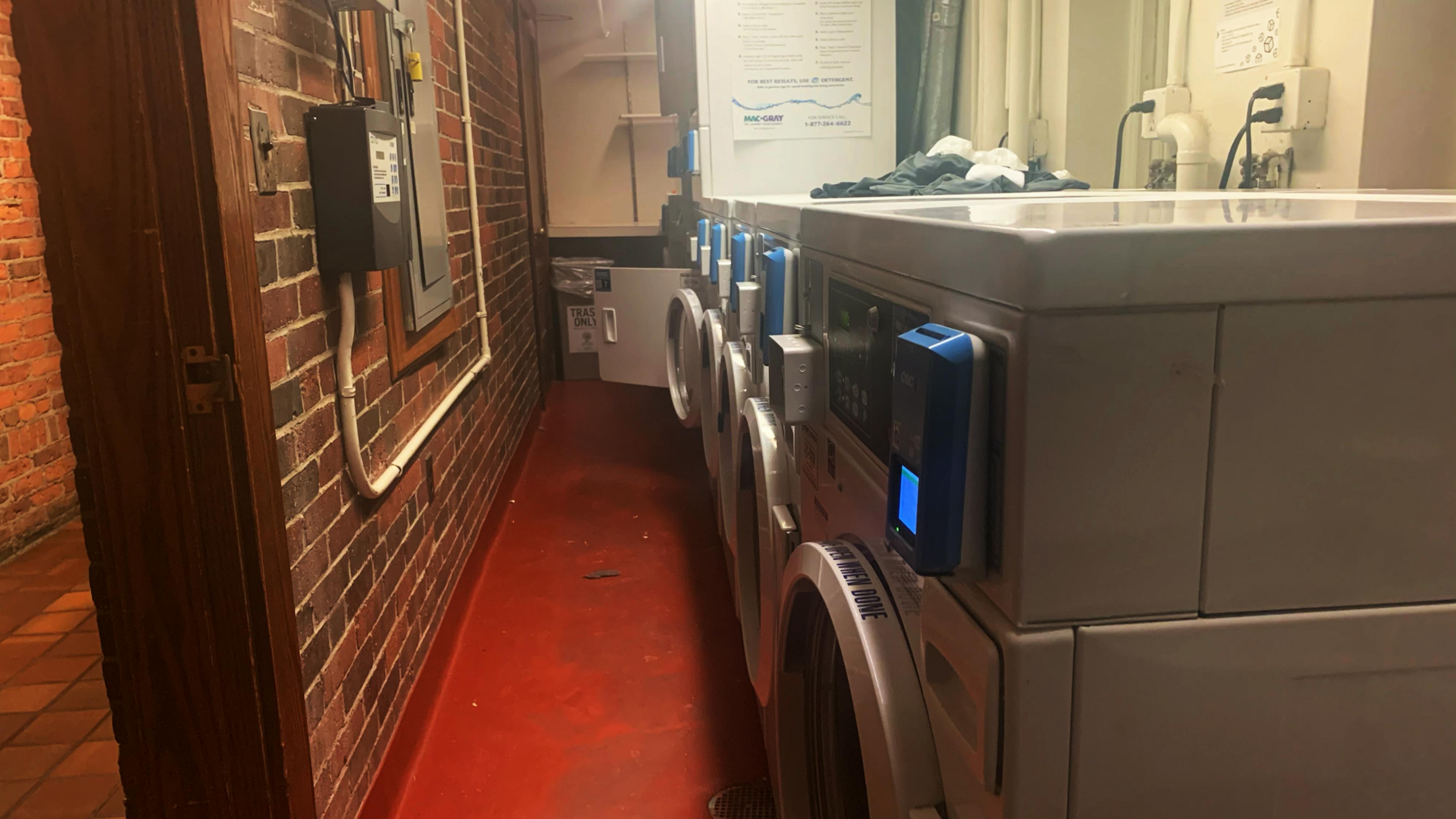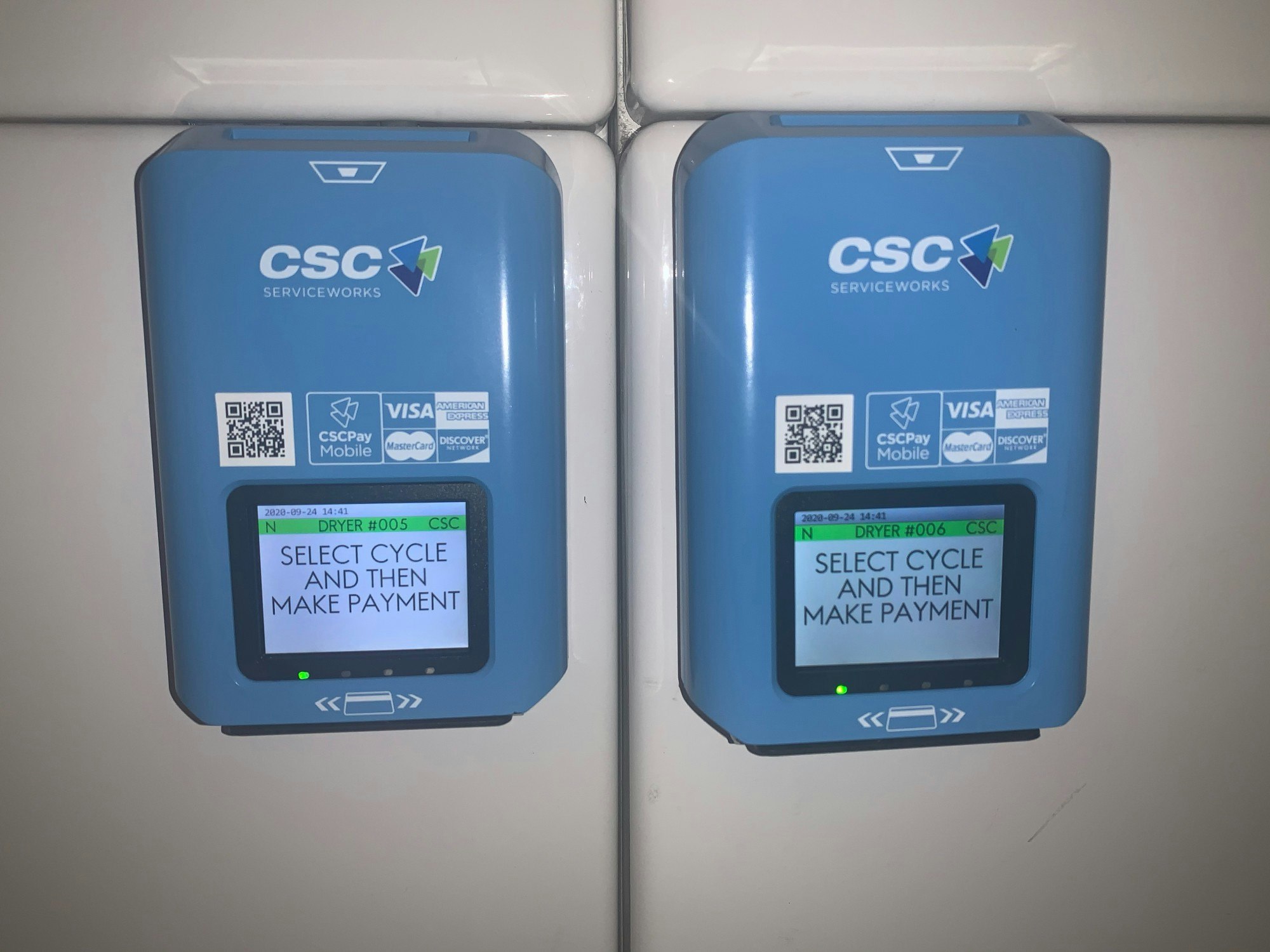
In an effort to streamline laundry services on campus, the College has phased out most old Dartmouth ID card readers in favor of a new mobile app that allows students to pay with a credit card rather than with DASH. However, some students have reported difficulties with the new system.
Over the summer, the College replaced laundry machine payment systems around campus to feature a new payment system that accepts cash, credit and debit cards, prepaid cards or the CSCPay mobile phone app, which can be downloaded from the App Store or Google Play. Students will no longer be able to use their Dartmouth ID cards to pay for laundry.
Students were notified of the change on the third day of their 14-day quarantine in an email from Dean of the College Kathryn Lively. The email noted that the new card readers would “improve efficiency and reduce breakdowns that some were experiencing last year.”
According to residential operations director Cathy Henault, the old system — which allowed students to pay with DASH — was outdated, and the College was unable to find new Dartmouth ID card readers. Though recent, the change is unrelated to COVID-19.
Henault described “significant problems” with the old card readers that made them difficult to maintain.
“We had a number of times where a single card reader would control all the machines in an entire laundry room,” she said. “So when that card reader was down, the entire room went down.”
With the new card readers, Henault said, each reader corresponds to one machine, so when a reader breaks, it only affects the corresponding machine.
According to Henault, residential operations has received “far, far fewer calls and complaints regarding machines not working” this year, which she said tells her that these new readers are working better.
However, some students have expressed frustration with the new system. John Cho ’22 said that he has encountered issues with the individual card readers attached to each machine.
“I don't think the chip reader [for credit and debit cards] works particularly well and neither does the swipe, so you're kind of forced into using the app,” he said.
Kevin Larkin ’22 said that he too has encountered problems while paying with a card.
Henault emphasized that if students run into errors such as these, it is important that they contact residential operations as soon as possible so that a technician can work on the machines.
Larkin said that after encountering an error message, other dorm residents said they had encountered similar issues and told him to download the app, which he then did.

Cho also said that while the app generally works well, it becomes difficult to use in the basement, where he does not have a strong Wi-Fi or cellular service connection.
“I foresee that being a minor nuisance in the future because if you wanted to reload money on the app in any capacity, you would have to go all the way upstairs again to a place where you have Wi-Fi, and then load the money and then come back down and scan the QR code,” he said.
The College notified students of the change in payment systems when on-campus quarantined students reached phase two. During phase one, students were not allowed to do laundry, as they were not allowed to leave their rooms except to get meals. Larkin said that he would have appreciated earlier notice of the change.
“I would have put less money on my DASH if I had known this going in,” he said. “... But I guess I’ll be able to take that into account in future terms.”
Meanwhile, some buildings have received new machines that have not been fully set up before students moved in.
According to Alpha Phi sorority house manager Elise Petit ’21, when residents began to arrive, they noticed that the app would not allow students to select machines in the building to use, even though the physical machines were there. APhi is owned by the College.
“When you go in the app and try and pick a machine, it just won't let you pick one,” Petit said. “And when you try to scan the QR code it says that you need Bluetooth to connect to the laundry, even though everyone has their Bluetooth on.”
Petit said that when she first learned of the issue, she contacted residential operations, who told her that they would not be able to have someone in to finish setting up the machines until all APhi residents had completed their 14-day quarantine.
Henault said that, because the vendor that Dartmouth uses for laundry was also upgrading other schools over the summer, there were “a handful” of buildings — including APhi — which they could not finish before students arrived on campus.
Petit said that not having access to laundry during the quarantine period has created some issues for residents of APhi.
“People have been definitely running out of clothes,” she said. “I mean, they told us to bring what we can carry, so I don't have 14 or 15 days’ worth of clothes, and a lot of other people are in the same boat.”
The Link LonkSeptember 25, 2020 at 01:10PM
https://www.thedartmouth.com/article/2020/09/laundry-machine-card-readers-replaced-by-app-some-frustrated-by-glitches
Laundry machine card readers replaced by app, some frustrated by glitches - The Dartmouth
https://news.google.com/search?q=Laundry&hl=en-US&gl=US&ceid=US:en

No comments:
Post a Comment